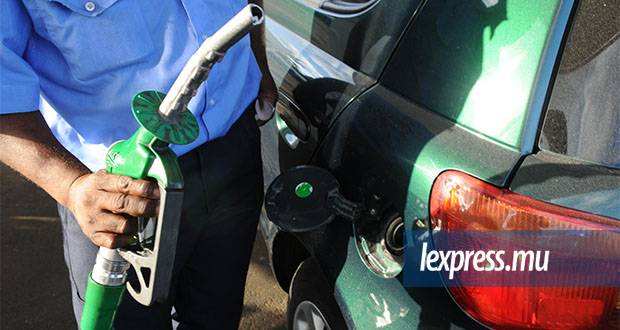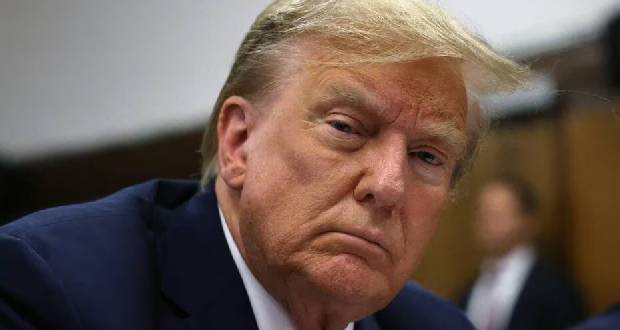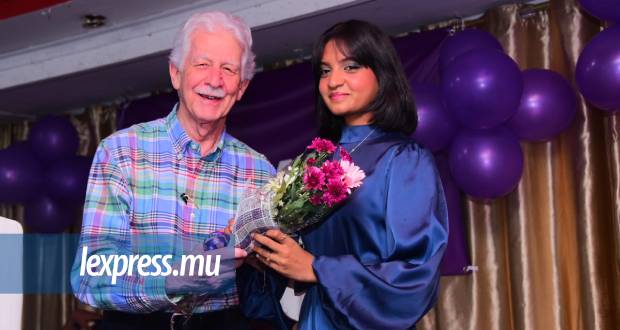Publicité
Electoral reform: The case for transparent funding and better regulation of political parties
Par
Partager cet article
Electoral reform: The case for transparent funding and better regulation of political parties


Gatherings in Port-Louis and Vacoas for the 2014 general elections. The former Minister of Finance highlights the fact that political parties need money to canvass the electorate.
The Ministerial Committee on the financing of political parties has submitted its recommendations on Friday. In this first part of his analysis, Rama Sithanen puts forward the policy options that Mauritius should take into account when enacting such a legislation.
Cabinet has endorsed the recommendations of the Ministerial Committee chaired by Deputy Prime Minister (DPM) Duval on the financing of political parties and the document has been sent to the State Law Office for comments and subsequent drafting of legislation. Four observations are in order.
First, in line with the Text submitted by the Human Rights Committee in 2012 to Mauritiuson the arbitrariness of the current requirement to declare one’s community (based on the population census of 1972) to stand as candidate for general elections, and the obligation to provide an effective and enforceable remedy so as to avoid such violation of rights in the future, one would have expected the Committee to crack this nut as a matter of priority (it is the second item in its terms of reference).
Second, it is equally urgent as Rezistans ek Alternativ has a long standing case before the Supreme Court and counsel for the State has repeatedly mentioned since the beginning of the year that a Ministerial Committe has met on few occasions to address the problem linked tothe community declaration of candidates and that Government would make its views known on the way forward. It appears that the Committee has not done so yet and theState will again ask for a postponement of the case.
Third, as party financing is a topic of national interest, it would have been more constructive to circulate the findings, conclusions and recommendations of the Committee to a wider audience for an informed debate and a critical evaluation before sending it to the SLO.
Fourth, as is the case in many democracies, it is key for acceptability and legitimacy to generate bi-partisan consensus on such an intractablesubject so that the law does not become hostage to political shenanigans and controversies. As the detailed contents of the document arenot available to the public, these two articles purport to make the case for transparency and fairness in the financing of political parties and to shed some light on the scope and focus of sucha legislation, the eligibility for public funding and the mechanism for its allocationamong parties.
Money matters in politics and it has become a necessary element of our democratic system. However if there is no proper and effective regulation, money can pose a threatto democracy itself. In Mauritius, political parties mostly obtain funding in the form of private and anonymousdonations and contributions, and there is a huge cloak of secrecy and a lack of transparency in who gives the money to them and how it is spent as there is an almost complete absence of regulations, oversight and control.
One of the hotly debated questions is how we can assure transparency and accountabilityin political financing with regulations and control and how to strike theright balance between public and private funding of parties. There is therefore a compellingcase for creating transparency in how money is raised and spent by political parties. A party financing law is therefore important and necessary for the national interest.
The regulation of the financing of political parties and election campaigns is a key determinant in thehealth of a democracy. Political parties and candidates need money to build a solid organisation and to canvass the electorate. Also, as electoralcampaigns get more sophisticated and expensive,parties will require more money. Yet money in politics, without proper regulation and control, can seriously undermine the very fabric of a democracy. For instance, the quality of the government is seriously compromised when decisions made by elected politicians benefit those who have funded their ascent to power and not the broader public interests.
The following issues are crucial in assessing policy options to regulatepolitical finance in Mauritius:
(1) How should the country deal with the risks posed by private and anonymous funding of political parties?
(2) Is some form of public funding of political activities the only alternative to avoid policy capture by interested money and lobby groups?
(3) Should some forms of private donations and contributions be prohibited or capped?
(4) Should there be limits on election campaign spending and other related expenditures?
(5) How should such public funding be allocated among different parties? And for what purposes?
(6) What should be the reporting and disclosure requirements, the institutional oversight and control to ensure greater transparency and accountability in the financing of political parties? And
(7) What should be the sanctions for violations of regulations? There are no off-theshelf reforms that can readily be adopted by Mauritius as different countries have chosen different strategies to deal with the problems of party funding. However we can look at the experience of some countries which have reformed the financing of political parties.
There are models in several countries which work reasonably well in reducing considerably the dependence on private and anonymous money from corporate sources to fund political parties and in enshrining multi-party democracy. The political financing patterns undoubtedly differ based on whether they involve public or private funding or both, are directly or indirectly subsidized or not, or have limits on expenditures and regulations on donations and how oversight and control are exercised.
There is a very strong case for curbing the nexus between big business and lobby groups on the one hand, and parties and politicians on the other. It is also crucial to end the suspicion that the culture of political donations is corruptible. Corporates are often highly dependent and thus vulnerable to discretionary government actions. The licensing and regulatory powers, the discretions the government has to start, operate, or expand a business and the permissions required for land acquisition, land conversion and environmental clearances and the taxation powers are such that companies are averse to alienating parties that are in office or that may come to power. In such cases they prefer to maintain the secrecy of donations as they are concerned about reprisals by political parties that might want to penalise them for favouring their opponents. They also make contributions to political parties across the spectrum on a formula basis, so that they keep all parties satisfied and protect themselves against the risk of politicaldisfavour by any party or coalition in office.
While it is true that public funding of political parties will not by itself eliminate scandals, a financing system that relies almost exclusively on private contributions is inevitably more prone to becoming hostage to vested interests. This has the potential to create a gap in representation between those who receive large and many donations and those who do not.
One way out is for parties to rely more on small sum donors, which tend to make them more internally democratic and transparent. Public subsidies have also played an important role in effecting this shift. Canada has been successful among Anglo-Saxon democracies in combining small-sum donors’ contributions with public funding. In return, parties are required to disclose their sources of income and donor identities.
As there is no perfect model, in the final analysis and when all factors are taken into consideration, the least harmful solution may be in the shape of a mixed formula to finance political parties with a combination of private and public funding subject to strict conditions that should be enforced for reporting, disclosure, accountability and transparency by a strong, credible and independent body with powers to regulate, audit, control and sanction.
Mauritiusshould lookinto the following set of policy options when enacting legislation on the financing of political parties. They are among the best international practices:
(i) To provide for public funding of political parties through grants and subsidies so as to allow them to meet the operational costs of party activities and the functioning of parliamentary party groups between elections. This could be both in terms of direct and indirect means.
Such public funding should be fair and reasonable and equitable to all parties. One must therefore determine the eligibility for public funding, its scope and focus. I suggest the following three criteria to apportion public resources for that specific purpose :
● a first share of the pot earmarked to be allocated on an equal basis to all parties that poll a prescribed threshold of votes or have at least one returned candidate in Parliament (say around 25%). This is consistent with the principle of equality and will not unduly penalise small and new parties;
● a second share to be distributed on the basis of the number of MPs returned to Parliament (around 25%). Subject to avoiding the huge anomalies of the FPTP voting formula in terms of seat – vote distortion, this is somewhat in line with the principle of broad proportionality;
● an important share to be allotted on the basis of the percentage of votes polled by parties subject to an eligible threshold (around 50% of the amount earmarked). This adheres fully to the strict proportionality concept as it is directly related to popular support and national vote.
(ii) To refund a percentage of the allowable electoral expenses of political parties that are contesting elections. I recommend three criteria to allocate such public funds for electoral purposes so as to ensure fairness and a level playing field. They again follow a combination of the equality and the proportionality principles.
● the number of candidates fielded by the party, subject to a minimum threshold of presence in a number of constituencies; (25 %)
● the share of votes polled by the candidate in the constituency subject to a minimum threshold; (25 %) and
● the percentage of vote obtained by the party at the national level subject to an eligible threshold (50 %).
There is a need to find a solution to advance funds to parties ahead of elections as this is the time when financial resources are required. We can draw on the experience of countries that refund election expenses.
In view of the specific context of Rodrigues, we will need a special carve out for that constituency both in respect of (i) and ( ii) above.
(iii) To grant indirect and in-kind subsidies by making available the services of public facilities such as the allocation of free media time on radio and television for campaign broadcasts during elections, subsidised access to print media, premises for campaign meetings, space for campaign materials, subsidised postage costs, etc., for the benefit of political parties. This is a level playing field desiderata;
On the allocation of airtime, I support the recommendation of the Sachs Commission which goes as follows:
“To bring an element ofequity, fairness and transparency in regard to allocation of Airtime, the allocation of Airtime amongst various political parties should be determined by the Electoral Supervisory Commission in consultation with the Electoral Commissioner. The allocation of Airtime should be done in an equitable manner based on clearly prescribed principles and guidelines to be evolved by the Electoral Supervisory Commission, so as to ensure that all political parties including those in Opposition get a fair opportunity of making political broadcasts in connection with the elections”. and
“Private broadcastersshould provide free time on an equitable basis for political broadcasts. The allocation of Airtime on private TV channels and radio should be regulated by the Electoral Supervisory Commission based on appropriate guidelines.”
(iv) To allow for a mixed public and private system of financing as public funding will not be enough to meet all the expenses of political parties. This is the experience of many democratic countries. The two main sources of funding of political parties are public funding and private funding, and most democracies today acknowledge that they are both needed for political parties to have enough money to carry out their democratic tasks;
(v) To prevent abuse, we should place a ceiling on the amounts that can be donated by individuals and corporations. Beyond that threshold, contributions should be made illegal. In France, the limit is 4,600 euros. There has been a suggestion of GBP 10,000 in the UK. By introducing ceilings, countries make the distinction between what they see as benign participation in politics, and dangerous contributions aimed at potentially corrupting the system;
(vi) To make all private contributions fully transparent. Small donations need not necessarily be disclosed. However beyond a given ceiling, all contributions and donations must be properly disclosed. In some countries, all donations in excess of a prescribed threshold are reported online with the names and addresses of the donors. We need to agree on a fair amount that would trigger disclosure;
(vii) To ban donations from some specific sources. For instance, in many countries donations from foreign governments, institutions, corporations and individuals are not permitted. This prohibition should not prevent financial donations from nationals living abroad. Donations from government contractors are also prohibited in some cases. Equally funds from unknown/secret sources and illegal sources like organized crime, gambling, money laundering and the drug trade are banned.
One must recognise that prohibitions may be difficult to enforce as it is vital for authorities to monitor all funds – including cash, which is extremely difficult to trace – that come into political party accounts. Equally political stakeholders can design various schemes to legally circumvent such prohibitions. Even with the best intentions of policy makers, loopholes in the law can be exploited to render useless the efforts to reform the financing of political parties. Third-party financing is one such mechanism that should be carefully monitored;
(viii) To fix reasonable limits for campaign spendings by political parties contesting elections to ensure fairness and a level playing field;
(ix) To encourage political parties to undertake reforms, hold internal elections and become more democratic. If political parties receive some of their income from the State, they can be made more accountable with greater transparency;
(x) To establish a system of public and private financing with full disclosure, reporting and monitoring and an independent enforcement agency backed by legal sanctions to ensure the success of the legislation.
ELECTORAL REFORM (PART II)
The case for transparent funding and better regulation of political parties
In the second part of his analysis of the political sphere, Rama Sithanen points out that it is important to have a strong and genuine agency that is empowered to oversee parties’ activities as well as those of their leaders.
To qualify for public funding, political parties have to be officially registered and must be governed by democratic means. Each party should be required to make public every year the annual accounts of the previous year which should incorporate, in all transparency, the sources of all their funds and how they have been spent. All private donations exceeding an amount fixed by the legislator must be recorded and made public. Political parties must comply with established controls governing the operation of the funding system. These include limitations and prohibitions regarding contributions and spending as well as adherence to prescribed financial management norms and standards. Disclosure requires systematic reporting, auditing and public access to records. Enforcement demands a strong and credible authority endowed with sufficient legal powers to supervise, verify, investigate and if necessary institute legal proceedings. Such disclosure of campaign funding would help voters make decisions, might improve trust in the political system and could assist in deterring and combating corruption.
No perfect system of financing of political parties exists. The laws and regulations must fit our context and circumstances. Money like water will always find an outlet. What is needed is a better balance between excessive dependence on big donors, on one hand, and too much reliance on the state, on the other. Any sensible person will realise that having parties depend on large donations that cause scandals is a mistake. That makes the case for a cap, combined with public funding, powerful. State financing of political parties has been tried and tested in established democracies and has been introduced in more than 100 countries.
“Public funding would help create a healthier democracy by giving all parties a level playing field”
There are good arguments in favour of state funding. There is need to restore trust in politics which has been corroded. State funding of political parties is often advocated as an antidote to the problems associated with illegitimate financing of parties by vested interests pursuing their own agenda. Such funding will significantly reduce the perception that private interests have undue influence on political elites and that policy positions can be bought by such interests. It is also a means of upholding and strengthening representative democracy and safeguarding it against perceived threats. It could help to sanitize politics by promoting transparency and a clean political process as it has happened in countries such as Canada and Germany. Public funding would help create a healthier democracy by giving all parties a level playing field and equal opportunities. It is also recognised that public subsidies for political parties have probably become a necessary and an unavoidable cost of democracy as there is no easy way to bridge the gap between the expenditure that is important for political purposes and the funds raised from voluntary donations to parties and candidates. Some also acknowledge that political parties need some funding from the state as they provide a public good and that the effective functioning of the state in a democracy depends on a legitimate political process and parties compete for political power, generate democratic governments and shape public policies. In some cases, the support base of political parties is divided along socioeconomic lines. If political parties receive all their income from private donations, there is a risk that socioeconomic differences will translate into differences in representation and access to political power. Also in countries with not too may wealthy people, ordinary citizens cannot be expected to contribute much to political parties.
Of course many arguments can be advanced to make the case against public funding. It is argued that funding of political parties by the state will break the crucial bond between parties and their electorate and civil society as it increases the distance between them. It is also pointed out that state funding of political parties takes money away from schools, hospitals, infrastructure and other priorities to give to ‘rich’ politicians. When resources are scarce, they must be used to focus on priorities and state funding of parties is not one of them. It can also favour the status quo that keeps the established parties in power as funds are often allocated among parties in Parliament. It could thus make it more difficult for new political forces to emerge. There may be the fear that political parties would become organs of the state rather than independent organizations. Also political parties are seen as both party and judge on this issue as they not only approve the decision in Parliament but they also collect the money.
“(...) the fear that political parties would become organs of the state rather than independent organizations.”
However on balance it may be the lesser of the two evils and it has become a natural and an unavoidable cost of democracy. Political parties need money for their electoral campaigns, to keep contacts with their constituencies, to carry out research and prepare policy decisions. If a country wants to have stable political parties, some argue that they also need to be prepared to help pay for them. If political parties obtain at least some money from the public purse this has the potential to limit the likelihood of them feeling the need to accept interested money from donors who want to influence their policies.
The public funding must be fair, objective, reasonable and equitable. It should be done in a right and proper way and without bias, with respect not only to direct public funds but also for indirect/in kind subsidies such as facilities, resources and services to political parties for participation in elections and other legitimate political activities. There must be a very clear and transparent, established and acceptable mechanism for allocating the necessary funds and other resources and facilities. The administration of the state funding system should also be done in a fair and equitable way on the basis of agreed principles and regulations and there should be a responsible management of the funds by an independent agency in accordance with established standards and norms of transparency and accountability.
Incumbent abuse of state resources is a classic problem of political funding as the outgoing government faces a difficult conflict of interest between being both the office holder and the candidate contesting the elections. They are often entitled to privileges, services and powers that are not available to all other candidates. Equal treatment is therefore necessary to act as a deterrent against bias and unfairness and against abuse of incumbency.
It is important to introduce legislation that guarantees reporting, disclosure, accountability and transparency while enforcing statutory financial management norms and standards. It should also ensure compliance with prescribed controls which include limitations on contributions and spending. Without disclosure it is impossible to know how much money is circulating in the political system, where it comes from or to whom it is given. Equally, the ceiling on donations and spending cannot be enforced, nor can we prevent illicit money from finding its way into campaign coffers. Information submit- ted by political parties should be timely, reliable and accessible.
The agency responsible for oversight and enforcement must be independent of the executive and legislative branches of government, so as to minimise the influence from the very elected officials whose parties it is expected to control. Overseeing powerful parties and their leaders is an inevitably risky and confrontational activity, and bureaucracies often try to avoid conflicts, especially with actors on whose benevolence they depend for funding. It is therefore key to have a credible, strong and genuinely independent agency that is empowered to oversee parties’ activities and has the effective authority to enforce compliance with the regulations. Otherwise it would be a toothless bulldog. The agency must recruit able and competent employees to perform its duties and it must be properly staffed and adequately funded. Sanctions must be such that the relevant political actors know there is a high probability that they will be actually enforced in the case of rule violations.
For instance, all political parties must be registered with the Electoral Commission and should acquire corporate status and have all rights normally enjoyed by a moral person. They will also have to comply with some stringent requirements concerning their accounts. During elections, every political party should be made accountable to the agency for its campaign expenditure for electoral purposes during that period and that overspending may lead to the invalidation of the election of its candidates.
“We should do away with the practice of having a plethora of ‘baz’ throughout the constituency.”
The agency functions will include, amongst others, the disbursement of funds to political parties in accordance with established guidelines as well as the enforcement of prescribed controls and application of sanctions. It should be empowered to launch investigations on its own initiative on the way funds are acquired and spent. It must have the power to inspect, review, investigate, ask questions and demand further information, explanation and documentation. It should be able to suspend funding in cases of default and institute civil claims for the recovery of funds wrongfully spent by a political party. When data and information on political finance information are made public, it is possible for the media and civil society to conduct their own scrutiny which could complement the agency’s control.
Election campaigns are very expensive. Competing parties have to reach many voters over a period of few weeks. However, campaign spending can be excessive, from two different points of view. First, unlimited spending may result in an uneven playing field, to the extent that parties with more money from rich supporters may simply drown out the voice of political actors representing less wealthy social groups. Therefore, some degree of limits on campaign spending may be desirable from the point of view of equality of opportunity. Second, capping campaign-related expenditures may have the bene- fit of reducing the demand for political donations, and thus also the possibility of quid quo pro and reliance on potentially risky sources of funding. Therefore, an ideal campaign finance regime should cap spending at some level that is high enough to allow for vigorous and fair competition, but that is at the same time reasonable enough to protect equality of opportunity and to reduce the risk of corruption.
The current spending limit for election candidates is unfeasibly low. It should reflect present realities and allow candidates and parties to spend enough for a decent campaign.
Sachs has recommended that ‘‘the ceilings on election expenses should be revised upward to a reasonable and realistic level so as to match the cost of election. The ceilings for party as well as independent candidates should be the same, but the ceiling should cover all expenditure incurred by the candidate in his or her constituency including the amount incurred by the party and friends and associates of the candidates.’’
With respect to oversight and sanction for exceeding the prescribed ceiling, Sachs proposed that ‘‘the returns of election expenses should be filed by the candidates with the Electoral Supervisory Commission within 4 weeks of the completion of the poll. The Commission should make these returns public within the next two weeks. After publication of these returns, a maximum period of 21 days should be provided for anyone to challenge any election expenses return and for filing of an election petition on that ground before a Court. Where satisfied that a candidate has not adhered to the prescribed ceilings, it should be the duty of the Commission to apply to the Court seeking annulment of the election.’’
There are also two other important proposals to bring down considerably the excessive level of election expenditure. First as recommended by Sachs, the organised provision of transport by the political parties or candidates for transportation of the electors for going to the polling stations to cast their vote should be prohibited and also made an electoral offence. Such practices do not exist in mature democracies. Second, we should do away with the practice of having a plethora of ‘baz’ throughout the constituency.
The regulation of party financing has been ignored for far too long. In the absence of legislation, there has been a lack of transparency by political parties, a perception by the public of corrupt practices and a cosy relationship between political parties and some big lobby groups with the suspicion of trading in influence and money being allowed to buy access to decision making power. The enactment of legislation on party financing together with some state funding is a step in the right direction and may offer a good basis to restore trust in our democratic polity. One can only wish that government, opposition and other stakeholders will be able to reach a consensus on the way forward in the interest of fairness and transparency.
Publicité
Les plus récents






